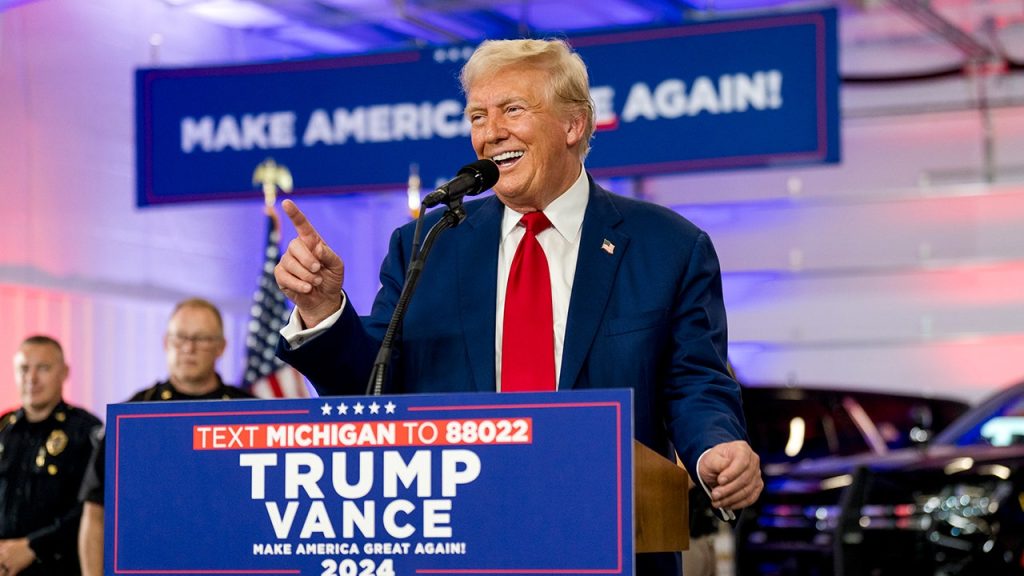2024: A Year of Political Upheaval
The year 2024 proved to be a tumultuous period in American politics, marked by unexpected twists and turns that reshaped the political landscape. From a presidential candidate’s eleventh-hour withdrawal to assassination attempts and a contentious election, the year was filled with high drama and significant consequences. The backdrop to this political earthquake was an increasingly polarized nation, grappling with complex issues and deeply divided along ideological lines. This atmosphere of uncertainty and division fueled much of the political drama that unfolded throughout the year.
The initial trajectory of the 2024 presidential race was dramatically altered when incumbent President Joe Biden withdrew from his re-election campaign. Growing concerns about his age and mental acuity, amplified by a special counsel investigation into his handling of classified documents, culminated in a disastrous debate performance against his rival, Donald Trump. The ensuing public pressure, including calls from within his own party, ultimately led Biden to concede the race, leaving Vice President Kamala Harris to assume the Democratic nomination. This unprecedented move sparked controversy and debate regarding the democratic process, with some criticizing the perceived lack of public input in Harris’s ascension.
Harris’s nomination, while supported by prominent Democratic figures, faced criticism for its perceived undemocratic nature. The absence of a primary contest for her selection raised concerns about transparency and voter choice. While supporters argued that the nomination process was open and Harris ultimately secured the party’s backing, critics questioned the legitimacy of a process that bypassed traditional primary elections. This unusual turn of events further fueled the existing political tensions and underscored the deep divisions within the American electorate.
Meanwhile, Donald Trump, navigating his own path back to the presidency, encountered a series of alarming events. Two separate assassination attempts, one at a campaign rally and another on a golf course, shook the nation and raised serious concerns about the safety of political candidates. Despite these harrowing experiences, Trump remained resolute in his campaign, using the attacks as a rallying point for his supporters. The attempts on his life underscored the volatility of the political climate and the potential for violence amidst the heightened tensions.
Despite facing criminal charges and legal battles, including a conviction for falsifying business records, Trump persevered in his campaign. The guilty verdict, which he vehemently contested, became another point of contention in an already polarized political climate. Trump framed the charges as politically motivated, further energizing his base and solidifying the perception of a political witch hunt. This narrative resonated with his supporters and contributed to his eventual victory.
Against this backdrop of unprecedented political drama, tensions flared on college campuses across the country. Anti-Israel protests, sparked by the escalating conflict in the Middle East, erupted into widespread demonstrations and clashes. These protests, often marked by antisemitic rhetoric and acts of violence, became a focal point in the presidential race, with candidates taking opposing stances on the issue. The campus unrest further reflected the deep societal divisions and the increasingly volatile political landscape. Ultimately, this year proved a testing ground for American democracy. A president stepping down due to health questions, coupled with violence against politicians, resulted in the return of a former president, despite a criminal conviction. This series of events highlighted the complex and often unpredictable nature of American politics, leaving the nation to grapple with the implications of a tumultuous year. The political upheaval continued into the early hours of November 6th when early results pointed to a decisive victory for Trump, putting him back in the Oval Office for a second term after an eight-year hiatus. The close nature of the polls heading into Election Day combined with the unprecedented events over the previous year created an atmosphere of uncertainty. Trump garnered 312 electoral votes, securing victory for Republicans, and earning the support of the popular vote as well.

